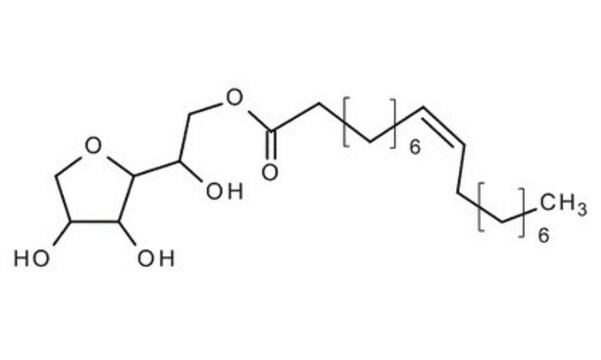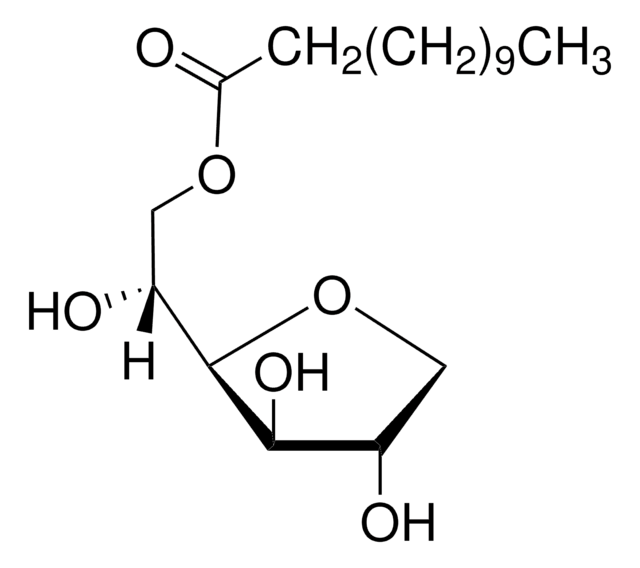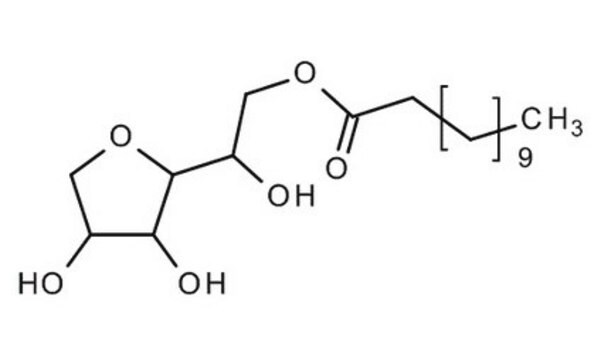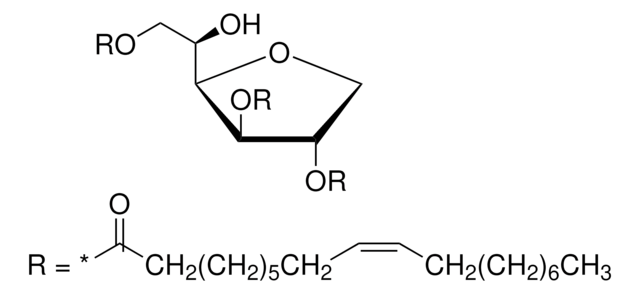09569
Span® 80
suitable for GC
Synonym(s):
Sorbitan monooleate, Span® 80
About This Item
Recommended Products
description
non-ionic
Quality Level
mol wt
428.60 g/mol
greener alternative product characteristics
Use of Renewable Feedstocks
Design for Degradation
Learn more about the Principles of Green Chemistry.
sustainability
Greener Alternative Product
technique(s)
LPLC: suitable
gas chromatography (GC): suitable
protein quantification: suitable
refractive index
n20/D 1.48 (lit.)
HLB value
4.6±0.1
density
0.99 g/mL at 20 °C
0.986 g/mL at 25 °C (lit.)
greener alternative category
SMILES string
[H][C@@](O)(COC(=O)CCCCCCC\C=C/CCCCCCCC)[C@H]1OC[C@H](O)[C@H]1O
InChI
1S/C24H44O6/c1-2-3-4-5-6-7-8-9-10-11-12-13-14-15-16-17-22(27)29-19-21(26)24-23(28)20(25)18-30-24/h9-10,20-21,23-26,28H,2-8,11-19H2,1H3/b10-9-/t20-,21+,23+,24+/m0/s1
InChI key
NWGKJDSIEKMTRX-AAZCQSIUSA-N
Looking for similar products? Visit Product Comparison Guide
General description
Application
Legal Information
Storage Class Code
10 - Combustible liquids
WGK
WGK 1
Flash Point(F)
Not applicable
Flash Point(C)
Not applicable
Personal Protective Equipment
Choose from one of the most recent versions:
Already Own This Product?
Find documentation for the products that you have recently purchased in the Document Library.
Customers Also Viewed
Our team of scientists has experience in all areas of research including Life Science, Material Science, Chemical Synthesis, Chromatography, Analytical and many others.
Contact Technical Service










